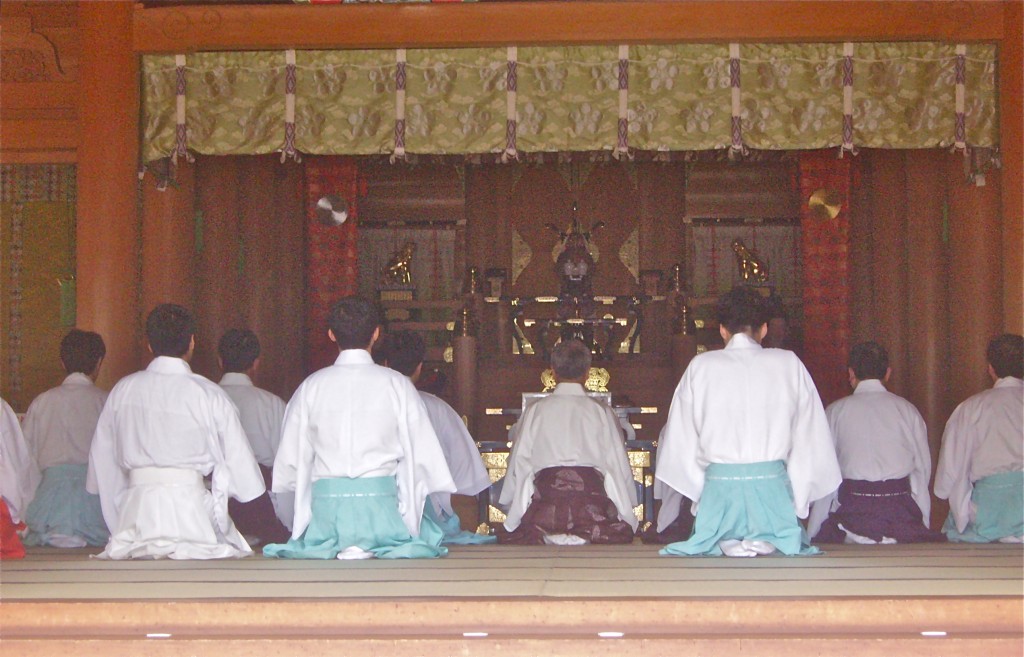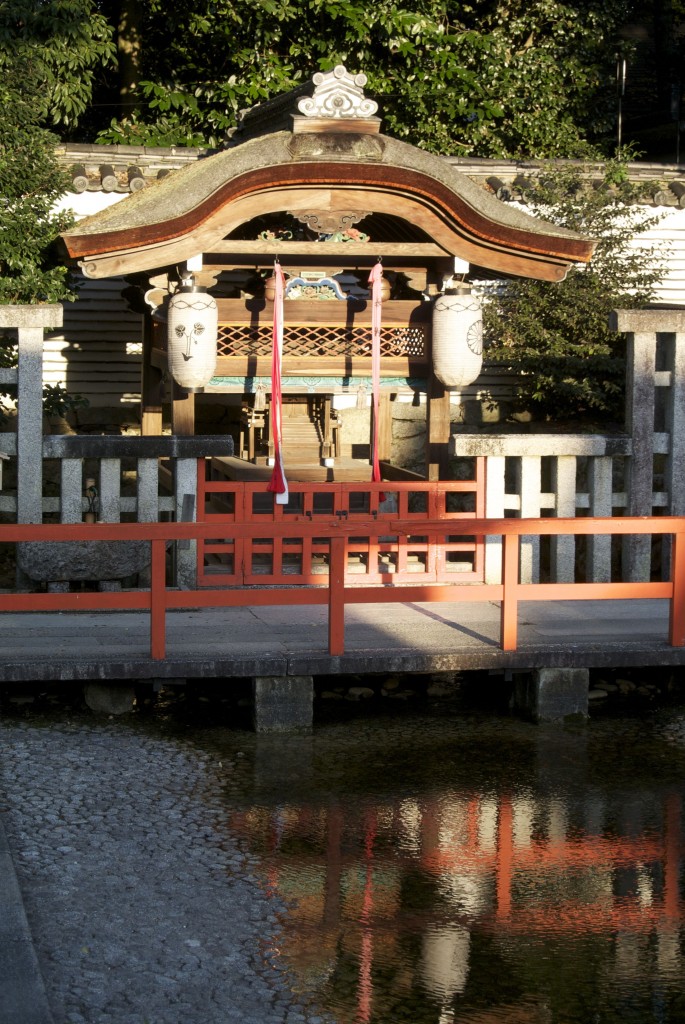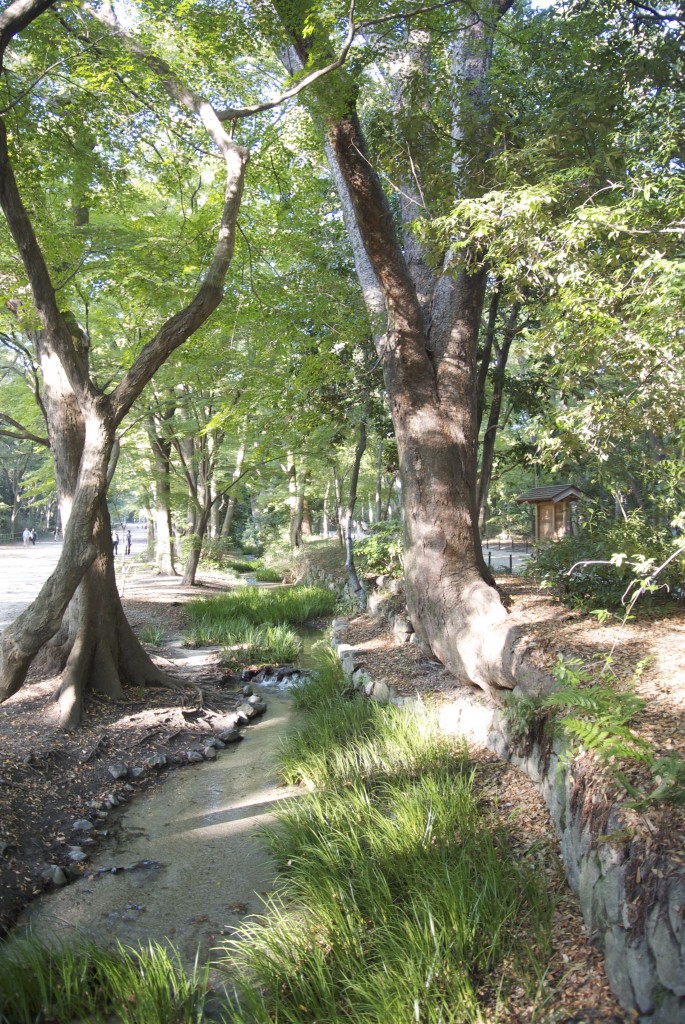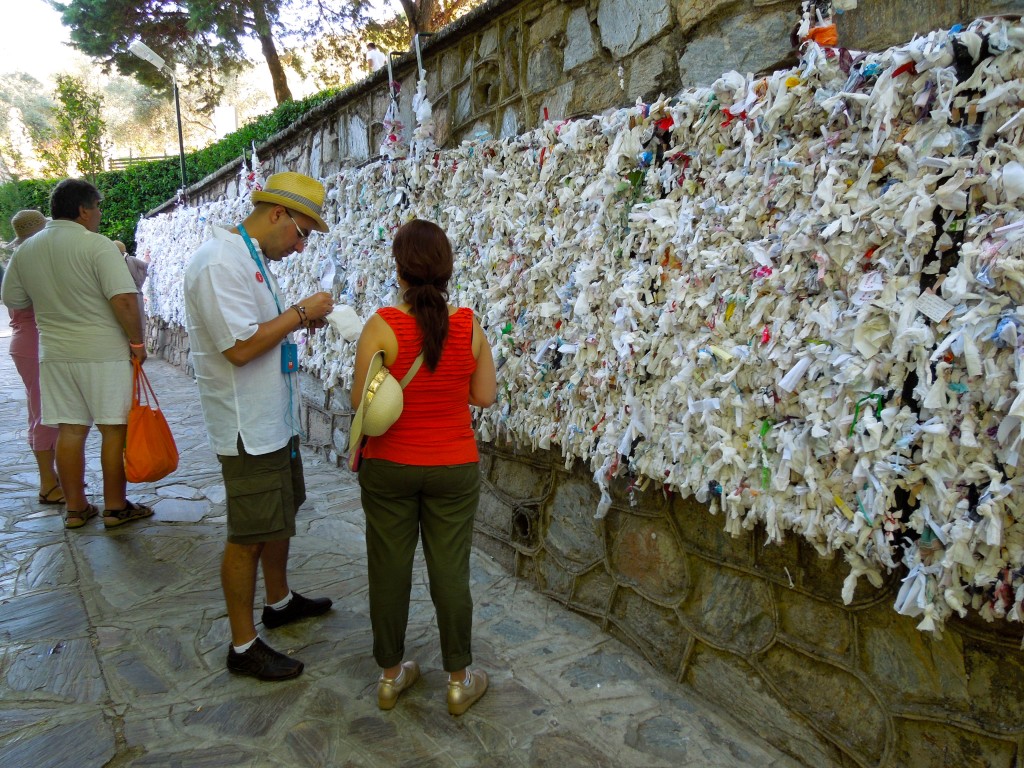
Shinto is often described as a religion of ritual and its priests as ritualists
The New York Times carried an article on Christmas Eve about the increasing number of people who seek ritual without religion and spirituality without dogma. Given the nature of Shinto, the trend is particularly interesting for ritual stands at its heart and there is no dogma – or indeed any requirement at all.
Who knows how many of the many, many millions in Japan who flock to shrines for the New Year have any belief in kami? Estimates range around 5% at most. It’s safe to say the overwhelming majority would see the personification of spirits as simply that – personification. It’s why by and large Japanese are uninterested in which kami are being worshipped at particular shrines. They’re simply expressions of a universal lifeforce.
On the other hand, most would probably see the rituals of Shinto as an important expression of Japaneseness, an assertion of communal solidarity as it were. This would seem to be a deep-rooted human need, as evidenced in the article below with its account of ritual gatherings for atheists. It explains why even non-believers in the West celebrate Christmas in some form too.
Whatever your belief, whatever the path you follow, Green Shinto hopes that the new year brings blessings upon you and yours.
****************************************************
Religion without God
by T. M. Luhrmann, professor of anthropology at Stanford University.

Shrines offer the opportunity to take time out and reflect on what is important in life
Unitarianism emerged in early modern Europe from those who rejected a Trinitarian theology in preference for the doctrine that God was one. By the 19th century, however, the Unitarian church had become a place for intellectuals who were skeptical of belief claims but who wanted to hang on to faith in some manner. Charles Darwin, for example, turned to Unitarians as he struggled with his growing doubt. The modern Unitarian Universalist Association’s statement of principles does not mention God at all.
As it happens, this kind of God-neutral faith is growing rapidly, in many cases with even less role for God than among Unitarians. Atheist services have sprung up around the country, even in the Bible Belt. Many of them are connected to Sunday Assembly, which was founded in Britain by two comedians, Sanderson Jones and Pippa Evans. They are avowed atheists. Yet they have created a movement that draws thousands of people to events with music, sermons, readings, reflections and (to judge by photos) even the waving of upraised hands. There are nearly 200 Sunday Assembly gatherings worldwide. A gathering in Los Angeles last year attracted hundreds of participants.
How do we understand this impulse to hold a “church” service despite a hesitant or even nonexistent faith? Part of the answer is surely the quest for community. That’s what Mr. Jones told The Associated Press: “Singing awesome songs, hearing interesting talks, thinking about improving yourself and helping other people — and doing that in a community with wonderful relationships. Which part of that is not to like?”

Gratitude for the wonders of existence brings its own reward
Another part of the answer is that rituals change the way we pay attention as much as — perhaps more than — they express belief. In “The Archetypal Actions of Ritual,” two anthropologists, Caroline Humphrey and James Laidlaw, go so far as to argue that ritual isn’t about expressing religious commitment at all, but about doing something in a way that marks the moment as different from the everyday and forces you to see it as important. Their point is that performing a ritual focuses your attention on some moment and deems it worthy of respect.
In Britain, where the rate of atheism is much higher than in the United States, organizations have now sprung up to mark life passages for those who consider themselves to be nonbelievers. The anthropologist Matthew Engelke spent much of 2011 with the British Humanist Association, the country’s pre-eminent nonreligious organization, with a membership of over 12,000. The evolutionary biologist Richard Dawkins, a prominent atheist, is a member.
The association sponsors a good deal of anti-religious political activity. They want to stop faith-based schools from receiving state funding and to remove the rights of Church of England bishops to sit in the House of Lords. They also perform funerals, weddings and namings. In 2011, members conducted 9,000 of these rituals. Ceremony does something for people independent of their theological views.
Moreover, these rituals work, if by “work” we mean that they change people’s sense of their lives. It turns out that saying that you are grateful makes you feel grateful. Saying that you are thankful makes you feel thankful. To a world so familiar with the general unreliability of language, that may seem strange. But it is true.
Religion is fundamentally a practice that helps people to look at the world as it is and yet to experience it — to some extent, in some way — as it should be. Much of what people actually do in church — finding fellowship, celebrating birth and marriage, remembering those we have lost, affirming the values we cherish — can be accomplished with a sense of God as metaphor, as story, or even without any mention of God at all.
Yet religion without God may be more poignant. Atheists trust in human relations, not supernatural ones, and humans are not so good at delivering the world as it should be. Perhaps that is why we are moved by Christmas carols, which conjure up the world as it can be and not the world we know.
May the spirit of Christmas be with you, however you understand what that means.

Omikuji fortune slips? In fact a wishing wall at Ephesus in Turkey, where people's hopes are written down and tied up in the manner of Shinto ema. Regardless of belief, giving expression to innermost hopes is good for the soul.

What an interesting post – quite thought provoking.
graham
Yes, it struck me that way too, Graham. I didn’t know about the Sunday Assembly movement but it makes a lot of sense. Joseph Campbell wrote of the need for contemporary myths, and I think spirituality too needs to find outlets that meet contemporary needs.
My brother began attending Sunday Assembly in Melbourne, Australia in 2014. Your post provided some insights into what might attract people to the group and spurred me on to learn more about it. For my brother the meeting of like minds, singing and ‘sermons’ are big attractions. I’m sure that ritual is important as well, even if it is subliminal. Performing them seems to meet a basic need in humans.
Interestingly I’ve just been watching a series on the history of mankind, and it seems one aspect that differentiated early humans from their Neanderthal neighbours was a sense of community fostered by art and spirituality. The presenter posited that this may have been what enabled humans to survive in contrast to the Neanderthals. Perhaps then ritual is built into our DNA….